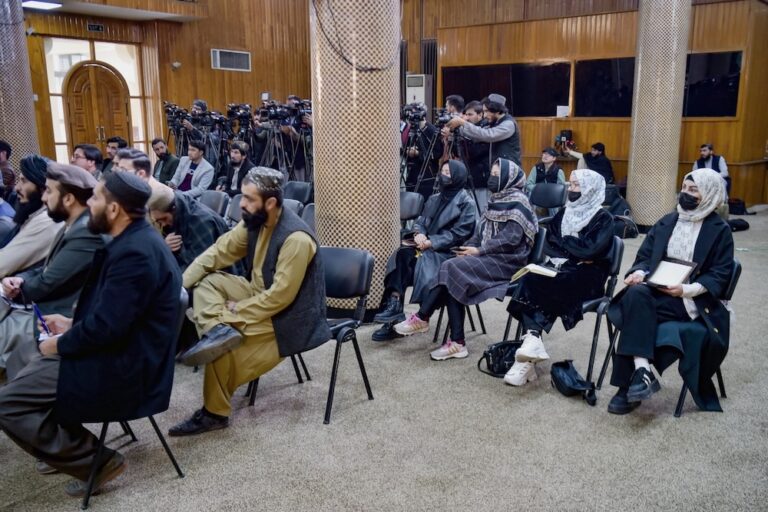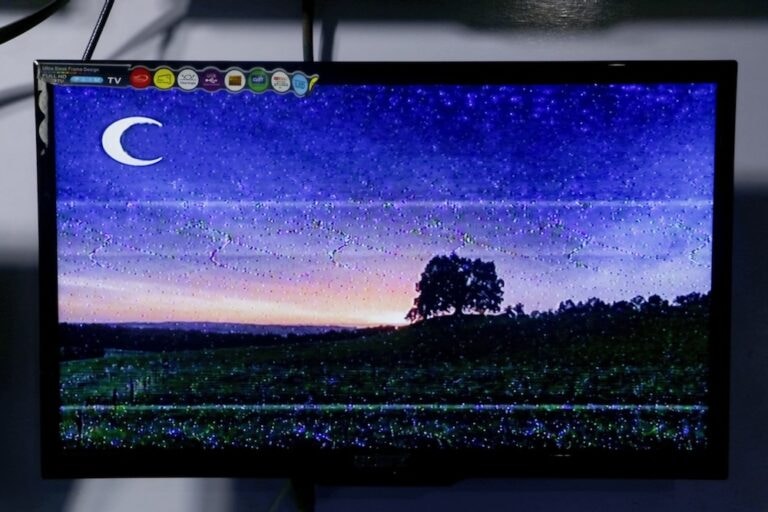(RSF/IFEX) – The following is a 15 January 2009 RSF press release: Reporters Without Borders gives Kabul news conference, urges government to make press freedom a priority Addressing a news conference today in Kabul, Reporters Without Borders secretary-general Jean-François Julliard urged President Hamid Karzai and the rest of the Afghan government to make it one […]
(RSF/IFEX) – The following is a 15 January 2009 RSF press release:
Reporters Without Borders gives Kabul news conference, urges government to make press freedom a priority
Addressing a news conference today in Kabul, Reporters Without Borders secretary-general Jean-François Julliard urged President Hamid Karzai and the rest of the Afghan government to make it one of their priorities to defend press freedom. Accompanied by representatives of Afghan journalists’ organisations, Julliard gave the press conference on the penultimate day of a one-week fact-finding visit to Afghanistan at the head of a Reporters Without Borders delegation.
“The press freedom situation is getting worse in Afghanistan and it is the government’s duty to reverse this disturbing trend,” Julliard said. “The country cannot continue to develop and progress towards democracy without a free and independent press. The president and his government must get fully involved in this issue and must take measures that give journalists more freedom to work. Much needs to be done in Afghanistan but the country will not be able to recover from 30 years of war without free and diverse news media.”
Reporters Without Borders continued: “The threats against Afghan journalists and visiting foreign journalists are becoming more and more diverse. As well as the Taliban, who have never ceased to threaten to kill journalists who do not comply with their demands, there are now criminals and mafia groups.
“Afghan journalists are free to express their views – as long as they stay clear of the country’s only truly taboo subject, Islam – but they operate in very difficult security conditions. The south and the east of the country are extremely unstable and fewer and fewer journalists are visiting these regions, which are no longer under government control and have become black holes for news and information.”
The Reporters Without Borders delegation visited the Kabul provisional detention centre on 12 January to meet with journalist Perwiz Kambakhsh, who is serving a 20-year prison sentence for downloading an essay about women’s rights in Islam. He was originally sentenced to death.
“As long as a citizen can be sentenced to death or to a long jail term just for reading a report on the Internet, we will not be able to say there is free expression in Afghanistan. Perwiz Kambakhsh must be released as soon as possible. He committed no crime and this case, which has been marred by judicial irregularities, is a grave stain on Afghanistan’s image. We told all the officials we met that his conviction must be overturned.”
Two journalists were killed in 2008 and around 50 were attacked or injured. Reporters Without Borders believes President Karzai must get to grips with this issue and make it very clear that he will not let impunity take hold as regards violence against journalists.
Many live in fear, and it is the job of the authorities to take measures to reassure them and to enable them to work without constant security concerns. It is deplorable than around 10 women journalists have been forced to abandon their work in recent months because of threats. Few of them got the necessary protection.
The authorities need to be more effective in solving the cases of journalists who have been murdered or who have been the victims of threats. Proper investigations need to be carried out to identify those responsible. It is unacceptable that the murders of Zakia Zaki and Abdul Samad Rohani have gone unpunished.
Reporters Without Borders also called for the rapid adoption of a proposed media law. Many journalists’ representatives are expecting a lot from this bill, which is still being examined and which has been a victim of the difficulties that the parliament and government are having in working together.
The government must also envisage drafting a law facilitating access to information. All the journalists who met the delegation said it was hard to get reliable information or comments from officials.
Reporters Without Borders said: “In any important event linked to the ongoing conflict, there are at least five different versions of the facts – the Taliban version, the defence ministry version, the version of the president’s office, the version of the International Security Assistance Force, and the version of the few eye-witnesses who are ready to talk to the press. The government version is often the longest and hardest to obtain. While we welcome the creation of a Media Centre, the government must communicate better and make itself more available to journalists.”
Reporters Without Borders also believes certain media owners must stop meddling in editorial content. The owners of media and their reporters should be kept far apart. Too many media are used for partisan purposes by their shareholders, and news quality suffers as a result. Journalists’ organisations are also discussing a code of conduct for the media and Reporters Without Borders supports this initiative. Reporters Without Borders also hails the efforts of Afghan journalists’ organisations to unite in defence of press freedom.
As well as Julliard, the Reporters Without Borders delegation consisted of Vincent Brossel, the head of its Asia Desk, and Réza Moini, the staff member responsible for Afghanistan. They met the justice minister, the culture and information minister, a Council of Ulemas representative, civil society representatives, ISAF officials, diplomats and many journalists and media organisations. The delegation arrived in Afghanistan on 10 January and is due to leave tomorrow. Reporters Without Borders will issue a detailed report on the visit in the coming weeks.
For further information on the Kambakhsh case, see:
http://ifex.org/en/content/view/full/97803
For further information on the Zaki case, see: http://ifex.org/en/content/view/full/94335
For further information on the Rohani case, see: http://ifex.org/en/content/view/full/94346


